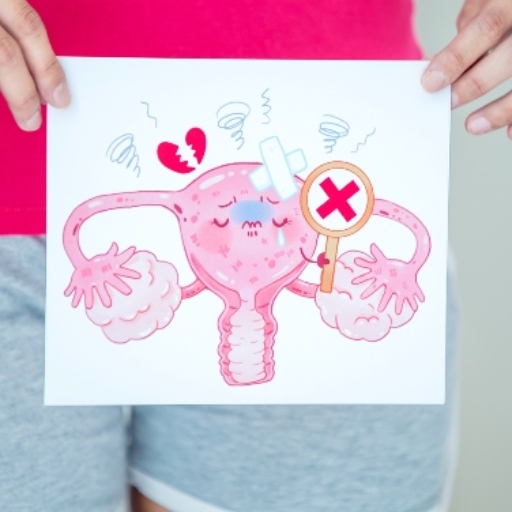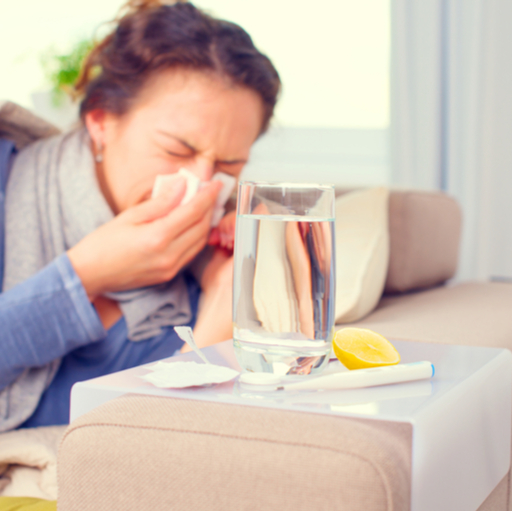भारत में, one woman dies of cervical cancer every 7 minutes. Around 1.22 lakh new cases and 67,000+ deaths of cervical cancer occur yearly. Cervical cancer is the most common cancer among women in India and continues to be the leading cause of cancer death. A social stigma is attached to diseases related to private parts, like cervical cancer. As a result, women are not able to express their concerns about any vaginal discharge or discomfort with their family members and, in some societies, even with their spouses. The most common cause of cervical cancer is human papillomavirus (HPV).
इनके बारे में जानें:
- What is Human Papillomavirus (HPV)?
- Which cancers are caused by HPV?
- What are the symptoms of HPV?
- The benefits of taking the HPV vaccine
- Who can take the HPV vaccine?
- Who can’t take the HPV vaccine?
What is Human Papillomavirus (HPV)?
Genital HPV is a common virus passed from one person to another through direct skin-to-skin contact during sexual activity. Most sexually active people will get HPV at some time in their lives. HPV infection is most common in people in their late teens and early 20s. HPV infections can be divided into low-rick HPV, which causes genital warts, and high-risk HPV, which is linked to several types of cancers. Different types of HPV can cause warts in the genital areas of men and women, called genital warts. Genital warts are not life-threatening. However, they can cause emotional stress, and their treatment can be very uncomfortable.
Which cancers are caused by HPV?
Some HPV types can cause cervical cancer in women and other less common cancers — like cancers of the anus, penis, vagina, vulva, and oropharynx.
What are the symptoms of HPV?
Many people with HPV do not usually develop any symptoms, and some may not even know they are infected. In fact, most HPV infections go away on their own without causing any serious health issues. However, some types of HPVs can cause the following symptoms:
- Genital warts may appear as small, raised bumps or a cluster of bumps around the genitals or anus, with the flesh colored pink or grey. They can be itchy and painful and may cause discomfort, but they are usually not serious.
- Women who have HPV may have abnormal Pap test results, which may indicate changes to the cells of the cervix. The Papanicolaou test is a method of cervical screening that is used to detect potential cancerous processes in the cervix or colon.
- Severe HPV can result in several types of cancers, which in their later stages, may cause pain, bleeding, and other symptoms.
Condoms may lower the risk of developing HPV-related diseases like genital warts and cervical cancer. However, HPV can infect areas that are not covered by a condom, so condoms may not fully protect against HPV. People can also lower their chances of getting HPV by being in a faithful relationship with one partner, limiting their number of sex partners, and choosing a partner with no or few prior sex partners. HPV vaccination gives protection against cancers caused by HPV and is one of the most effective ways to prevent HPV-related cancers.
The benefits of taking the HPV vaccine
The HPV vaccine offers several benefits:
- The HPV vaccine can help prevent certain types of cancer. Some of the above-mentioned cancers can spread throughout the body and prove to be fatal. So, vaccination reduces the overall risk of cancers.
- The vaccine can prevent genital warts, which are not very serious but can get uncomfortable.
- The vaccine is safe and effective to the extent that it provides long-lasting protection against the virus.
- Widespread vaccination against HPV can reduce the overall prevalence of HPV-induced infections.
Who can take the HPV vaccine?
HPV vaccination is recommended for boys and girls between ages 11 and 12 All teens should be vaccinated against HPV before joining junior college. In a nutshell, vaccination should be completed before the first sexual encounter. The most commonly available cervical vaccine brands are Cervarix and Gardasil.
Who can’t take the HPV vaccine?
Although the HPV vaccine is safe and recommended for everyone, there are some individuals who should consult a healthcare professional before getting vaccinated. They are:
- Anyone who has had a severe allergic reaction to the previous dose of the HPV vaccine or to any ingredient in the vaccine.
- Pregnant women should not receive the HPV vaccine. However, breastfeeding mothers can be vaccinated.
- Anyone with a weakened immune system suffering from a disease (HIV) or those who underwent an organ transplant operation should talk to their healthcare provider before getting vaccinated.
- Since one of the components of the vaccine is yeast, individuals with an allergy to yeast should consult a doctor before getting vaccinated. Inform your doctor if you have an allergy to latex.
- People with moderate to severe illness should wait until they recover fully.
Cervical cancer screening is equally important. Regular cervical cancer screening (Pap and HPV tests) and follow-up can prevent most cases of cervical cancer.
Stay tuned to the Activ Living Community. Keep up to date with the latest health tips and trends through expert videos, podcasts, articles, and much more in nutrition, fitness, mindfulness, and lifestyle conditions like Asthma, Blood Pressure, Cholesterol, and Diabetes.





 1800-270-7000
1800-270-7000











